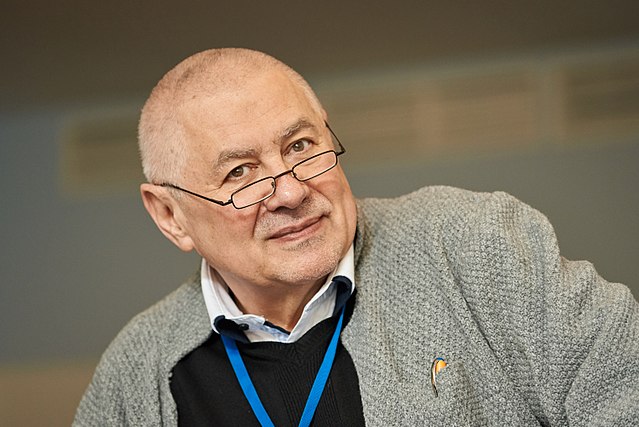Gleb Pavlovsky died on 27 February in Moscow after a prolonged illness.
I have mixed feelings regarding this Odesa native, who became the architect of "managed democracy" in Russia. Andrew Wilson masterfully described his legacy for both Russia and Ukraine in the book "Virtual Politics: Faking Democracy in the Post-Soviet World."
Pavlovsky was a cynical man. He openly questioned the ability of any electorate (in any country) to make the informed decisions necessary for governance. Democracy, in his mind, was a technological mechanism: a way of legitimizing the results of media manipulation, of discourse construction, of symbolic programming. For him, political campaigning was, therefore, a technology, a method for inserting "messages" into voters' minds.
His technologies proved useful to Putin who sought to consolidate the "power vertical" during his first 8 years in power (until 2008). To this day, Putin is revered by his electorate: his constructed cult of personality is constantly reinforced through media messages and emotional symbolism.
Back in 2004, Pavlovsky tried to apply his "political technologies" to Ukraine's electoral competitions. He was the author of the highly controversial "three Ukraines" map distributed by Yanukovych aimed at polarizing the country and eventually created the ideological foundation for Putin's "Novorossiya" myth.

He clearly believed the divisive discourse that he was instrumental in constructing could be just as easily deconstructed after the election. He miscalculated. His candidate lost the election [after the Orange Revolution (despite mass falsifications in vote counting). Still, the polarization of the electorate remained a factor in Ukrainian politics for many years thereafter.
Ukraine could not be consolidated in the same way Russia could be. Pavlovsky blamed Viktor Yushchenko's western advisers for the Orange Revolution, but ironically his candidate - Viktor Yanukovych - coopted the services of Paul Manafort, an American "student" of Pavlovsky.
Manafort's legacy, and his use of "virtual politics" tactics in the Trump campaign of 2016, are still being grappled with.
Constructing a power vertical in a country whose citizens strongly identify with an independentist (some would say - anarchic) Cossack/Kozak ethic is impossible - at least in the long term.
Five little-known reasons Ukraine is a “Land of Freedom” just like the USA
Nevertheless, Pavlovsky's death marks the end of an era.
The father of "political technology" - manipulative media construction of public discourse - has died. I don't know whether he regretted creating his "dragon," but certainly, his passing gives hope that politics may again become "real" rather than virtual.
Pavlovsky was pushed out of the Kremlin during the Medvedev presidency and then gradually came to (quietly) criticize Putin after his return.
His position on the war in Ukraine can be captured in the following quote: "The previous Putin would not have done this," he said soon after the invasion. "He was a very sane-thinking person. But this has all vanished now. He has an obsession about Ukraine that he didn't previously have. He is reacting now to the pictures in his own head."
Pavlovsky was instrumental in putting those pictures in Putin's head. Perhaps with his passing, the pictures may fade (or crumble) as well.
Related:
- The overlooked presidency of Yushchenko
- Civil society in Ukraine: building on the Euromaidan legacy
- How Euromaidan helped democratisation in Ukraine

